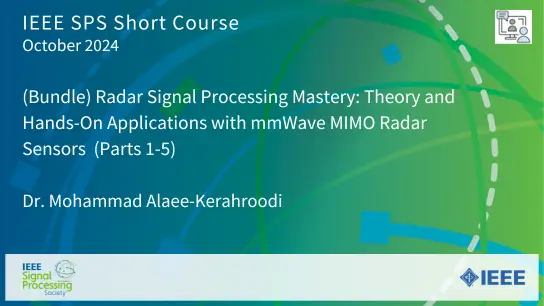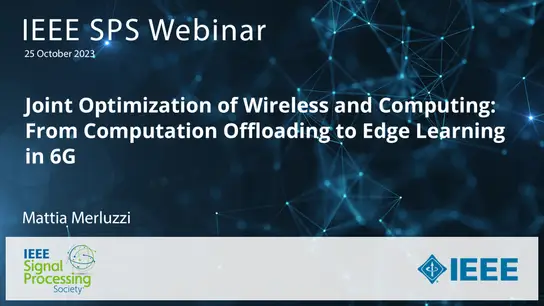POWER-EFFICIENT HYBRID MIMO RECEIVER WITH TASK-SPECIFIC BEAMFORMING USING LOW-RESOLUTION ADCS
Timur Zirtiloglu, Rabia Tugce Yazicigil, Nir Shlezinger, Yonina Eldar
-
Members: FreeSPS
IEEE Members: $11.00
Non-members: $15.00Length: 00:13:42
10 May 2022
Multiple-input multiple-output (MIMO) systems utilize multiple antennas and signal acquisition chains, facilitating multi-user communications with increased spectral efficiency and better coverage via beamforming. MIMO systems are typically costly to implement and consume high power. A commonly used method to reduce the cost of MIMO receivers is to design hybrid analog/digital beamforming (HBF), which reduces the number of RF chains. However, the added analog circuitry involves active components whose consumed power may surpass that saved in RF chain reduction. An additional method to realize power-efficient MIMO systems is to use low-resolution analog-to-digital converters (ADCs), however, compromising signal recovery accuracy. In this work, we propose a power-efficient hybrid MIMO receiver with dedicated beamforming to mitigate spatial interferers in congested environments, utilizing low-quantization rate ADCs, jointly optimizing the analog and digital processing using task-specific quantization techniques. We present an efficient analog pre-processing hardware architecture utilizing sparse low-resolution vector modulators to reduce analog processing power while maintaining recovery accuracy. Supported by numerical simulations and power analysis, our power-efficient MIMO receiver achieves comparable signal recovery performance to power-hungry fully-digital MIMO receivers using high-resolution ADCs. Furthermore, our receiver outperforms the task-agnostic HBF receivers with low-quantization rate ADCs in recovery accuracy at lower power.



